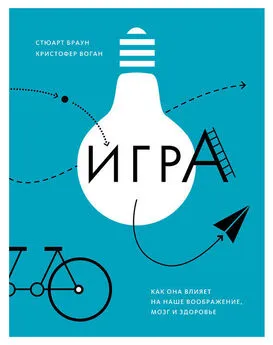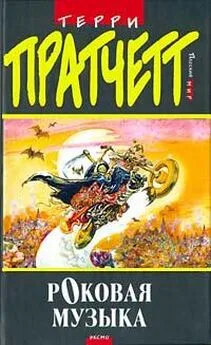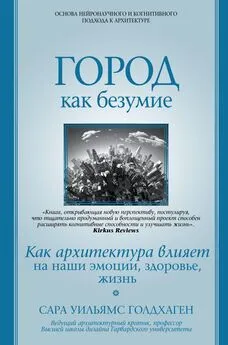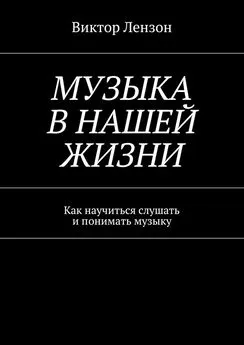Виктория Уильямсон - Мы – это музыка. Как музыка влияет на наш мозг, здоровье и жизнь в целом
- Название:Мы – это музыка. Как музыка влияет на наш мозг, здоровье и жизнь в целом
- Автор:
- Жанр:
- Издательство:Манн, Иванов и Фербер
- Год:2016
- Город:Москва
- ISBN:978-5-00057-660-1
- Рейтинг:
- Избранное:Добавить в избранное
-
Отзывы:
-
Ваша оценка:
Виктория Уильямсон - Мы – это музыка. Как музыка влияет на наш мозг, здоровье и жизнь в целом краткое содержание
Прочтение этой книги, возможно, даст идеи, как правильно применить силу музыки в ваших обстоятельствах.
Эта книга будет интересна в первую очередь тем, кто интересуется влиянием музыки на человеческую психику и физиологию.
На русском языке публикуется впервые.
Мы – это музыка. Как музыка влияет на наш мозг, здоровье и жизнь в целом - читать онлайн бесплатно полную версию (весь текст целиком)
Интервал:
Закладка:
Thaut, M.H., et al. (1996), ‘Rhythmic auditory stimulation in gait training for Parkinson’s disease patients’, Movement Disorders , 11 (2), 193–200.
383
Nombela, C., Hughes, L.E., Owen, A.M., and Grahn, J.A. (2013), ‘Into the groove: can rhythm influence Parkinson’s disease?’, Neuroscience and Biobehavioural Reviews , Sep 3. pii: S0149–7634 (13)00193–0.
384
Bradt, J., et al. (2010), ‘Music therapy for acquired brain injury’, Cochrane Database of Systematic Reviews 2010, Issue 7. Art. No.: CD006787. DOI: 10.1002/14651858.CD006787.pub2.
385
Muto, T., et al. (2007), ‘Interactive cueing with walk-Mate for Hemiparetic Stroke Rehabilitation’, Journal of NeuroEngineering and Rehabilitation , 9, 58.
386
Schlaug, G., et al. (2010), ‘From singing to speaking: facilitating recovery from nonfluent aphasia’, Future Neurology , 5 (5), 657–665.
387
Conklyn, D., et al. (2012), ‘The Effects of Modified Melodic Intonation Therapy on Nonfluent Aphasia: A Pilot Study’, Journal of Speech, Language, and Hearing Research , 55 (5), 1463–1471.
388
Zipse, L., Norton, A., Marchina, S., and Schlaug, G. (2012), ‘When right is all that is left: plasticity of right-hemisphere tracts in a young aphasic patient’, Annals of the New York Academy of Sciences , 1252, 237–245.
389
Stahl, B., et al. (2013), ‘How to engage the right brain hemisphere in aphasics without even singing: evidence for two paths of speech recovery’, Frontiers in Human Neuroscience , 7, 35.
390
Lai, H.L., and Good, M. (2005), ‘Music improves sleep quality in older adults’, Journal of Advanced Nursing, 49 (3), 234–244. Cappuccio, F.P., et al. (2011), ‘Sleep duration predicts cardiovascular outcomes: a systematic review and meta-analysis of prospective studies’, European Heart Journal , 32 (12), 1484–1492.
391
Bradt, J., Dileo, C., Grocke, D., and Magill, L. (2011), ‘Music interventions for improving psychological and physical outcomes in cancer patients’, Cochrane Database of Systematic Reviews, Issue 8. Art. No.: CD006911. DOI: 10.1002/14651858.CD006911.pub2.
392
Bradt, J., and Dileo, C. (2009), ‘Music for stress and anxiety reduction in coronary heart disease patients’, Cochrane Database of Systematic Reviews, Issue 2. Art. No.: CD006577. DOI: 10.1002/14651858.CD006577.pub2.
393
Cucherat, M. (2007), ‘Quantitative relationship between resting heart rate reduction and magnitude of clinical benefits in post-myocardial infarction: a meta-regression of randomized clinical trials’, European Heart Journal, 28 (24), 3012–3019.
394
Lane, D. (2011), ‘Music as Medicine, Music and the Brain’ (podcast), available at: http://www.loc.gov/podcasts/musicandthebrain/podcast_lane.html.
395
Lin, S.-T. et al. (2011), ‘Mental Health Implications of Music: Insight from Neuroscientific and Clinical Studies’, Harvard Review of Psychiatry , 19 (1), 34–46.
396
Maratos, A., Crawford, M.J., and Procter, S. (2011), ‘Music therapy for depression: it seems to work, but how?’, British Journal of Psychiatry , 199 (2), 92–93.
397
Mössler, K., Chen, X., Heldal, T.O., and Gold, C. (2011), ‘Music therapy for people with schizophrenia and schizophrenia-like disorders’, Cochrane Database of Systematic Reviews, Issue 12. Art. No.: CD004025. DOI: 10.1002/14651858.CD004025.pub3.
398
Vink, A.C., Bruinsma, M.S., and Scholten, R.J.P.M. (2003), ‘Music therapy for people with dementia’, Cochrane Database of Systematic Reviews, Issue 4. Art. No.: CD003477. DOI: 10.1002/14651858.CD003477.pub2.
399
Golda, C., Solli, H.P., Krüger, V., and Lie, S.A. (2009), ‘Dose-response relationship in music therapy for people with serious mental disorders: Systematic review and meta-analysis’, Clinical Psychology Review , 29 (3), 193–207.
400
Clair, A. (2011), ‘Music Therapy, Alzheimer’s and Post-Traumatic Stress’ (podcast), available at: http://www.loc.gov/podcasts/musicandthebrain/podcast_clair.html.
401
Maratos, A., Crawford, M.J., and Procter, S. (2011), ‘Music therapy for depression: it seems to work, but how?’, British Journal of Psychiatry , 199 (2), 92–3. DeNora, T (2003), Beyond Adorno: Rethinking Music Sociology . Cambridge: Cambridge University Press.
402
Brandes, V, et al. (2010), ‘Receptive music therapy for the treatment of depression: a proof-of-concept study and prospective controlled clinical trial of efficacy’, Psychotherapy and Psychosomatics , 79 (5), 321–322.
403
Cuddy, L.L., et al. (2012), ‘Memory for Melodies and Lyrics in Alzheimer’s Disease’, Music Perception , 29 (5) 479–491.
404
Simmons-Stern, N.R., Budson, A.E., and Ally, B.A. (2010), ‘Music as a memory enhancer in patients with Alzheimer’s disease’, Neuropsychologia , 48 (10), 3164–3167.
405
Moussard, A., Bigand, E., Belleville, S., and Peretz, I. (2012), ‘Music as an Aid to Learn New Verbal Information in Alzheimer’s Disease’, Music Perception , 29 (5), 521–531.
406
Guétin, S., et al. (2011), ‘Effect of Music Therapy on Anxiety and Depression in Patients with Alzheimer’s Type Dementia: Randomised, Controlled Study’, Dementia and Geriatric Cognitive Disorders , 28 (1), 36–46.
407
Clair, A. (2011), ‘Music Therapy, Alzheimer’s and Post-Traumatic Stress’ (podcast), available at: http://www.loc.gov/podcasts/musicandthebrain/podcast_clair.html.
408
Nair, B., et al. (2010), ‘The effect of Baroque music on behavioural disturbances in patients with dementia’, Australasian Journal on Ageing , 30 (1), 11–15.
409
Kwekkeboom K.L. (2003), ‘Music versus distraction for procedural pain and anxiety in patients with cancer’, Oncology Nursing Forum , 30 (3), 433–440.
Интервал:
Закладка:
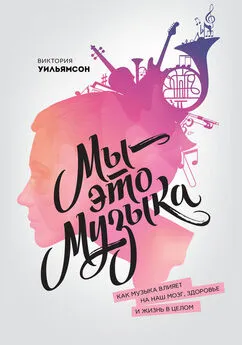

![Аре Бреан - Музыка и мозг [Как музыка влияет на эмоции, здоровье и интеллект]](/books/1068692/are-brean-muzyka-i-mozg-kak-muzyka-vliyaet-na-emoc.webp)
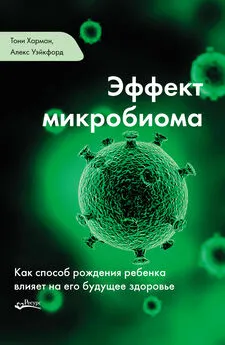

![Виктория Токарева - Тихая музыка за стеной [сборник]](/books/1102057/viktoriya-tokareva-tihaya-muzyka-za-stenoj-sbornik.webp)
